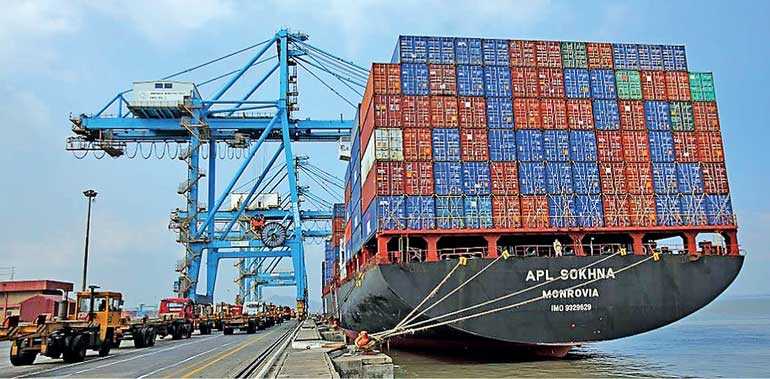Tuesday Feb 17, 2026
Tuesday Feb 17, 2026
Monday, 11 January 2021 00:00 - - {{hitsCtrl.values.hits}}

The Hindu Business Line: The board of trustees of Centre-owned Jawaharlal Nehru Port Trust (JNPT) on Thursday cleared a proposal to privatise the container terminal run by the port authority itself at the port located near Mumbai.
The proposal was cleared by the board of India’s biggest state-run container gateway with six trustees voting in favour and the two labour representatives voting against it.
Confirming the board approval, JNPT Deputy Chairman Unmesh Wagh said the proposal will be submitted to the Ministry of Ports, Shipping and Waterways for ratification because the privatisation of the terminal will be undertaken through the public- private partnership (PPP) route at an estimated cost of over ₹800 crore.
“We are ready with the tender documents; once the final clearance is granted by the Ministry, we will issue a global request for qualification,” Wagh told BusinessLine.
Container handling
JN Port Container Terminal (JNPCT), one of the five container terminals operating at JNPT, handled 720,000 twenty-foot equivalent units (TEUs) in FY20 against 1.04 million TEUs in FY19. The terminal has a capacity to handle 1.35 million TEUs a year.
JNPCT is the only such facility operated by a government-owned port authority across any of the 12 state-owned major ports in India. In three years, JNPCT’s volumes have tumbled by more than half from 1.53 million TEUs in FY17 to 1.48 million TEUs in FY18, 1.04 million TEUs in FY19 and 720,000 TEUs in FY20.
Between April and November this year, JNPCT handled 353,921 TEUs, against 509,150 TEUs in the same period last year.
“The key point is that JNPCT’s business is going away because it is a stand-alone terminal. We don’t have any option but to go for privatisation,” Wagh said.
Specialists in the container terminal industry typically leverage their large terminal network presence globally to attract shipping lines, their main clients that brings business.
It is common in the terminal industry for operators to ask a container carrier to call at its facility, say in JNPT, if it wants a berthing window at any of their terminals elsewhere globally and vice versa.
JNPCT being a single terminal operator does not have the clout to either retain a line or attract new lines to its terminal, said a port industry consultant.
Taiwan’s Wan Hai Lines is shifting its weekly service from JNPCT to Bharat Mumbai Container Terminals (BMCT) run by Singapore’s PSA at JNPT from January, taking away volumes of as much as 22,000 TEUs a month. Last year, Hyundai Merchant Marine left JNPCT for BMCT.
‘Long overdue’
“Privatisation of JNPCT is long overdue,” says Ramesh Singhal, Director at i-maritime Consultancy Ltd. “It will lead to better management, efficiency and upgradation of the terminal,” he said.
However, Singhal cautioned: “It seems like a losing battle with Mundra port and the planned port at Vadhawan”.
DP World runs two separate terminals at JNPT, while PSA International and APM Terminals operate one each. The privatisation tender is likely to see competition between DP World, APM Terminals and Adani Ports to win the project.
Workers, who have been opposing the port authority’s move to privatise JNPCT, said they will take legal opinion on their next course of action.